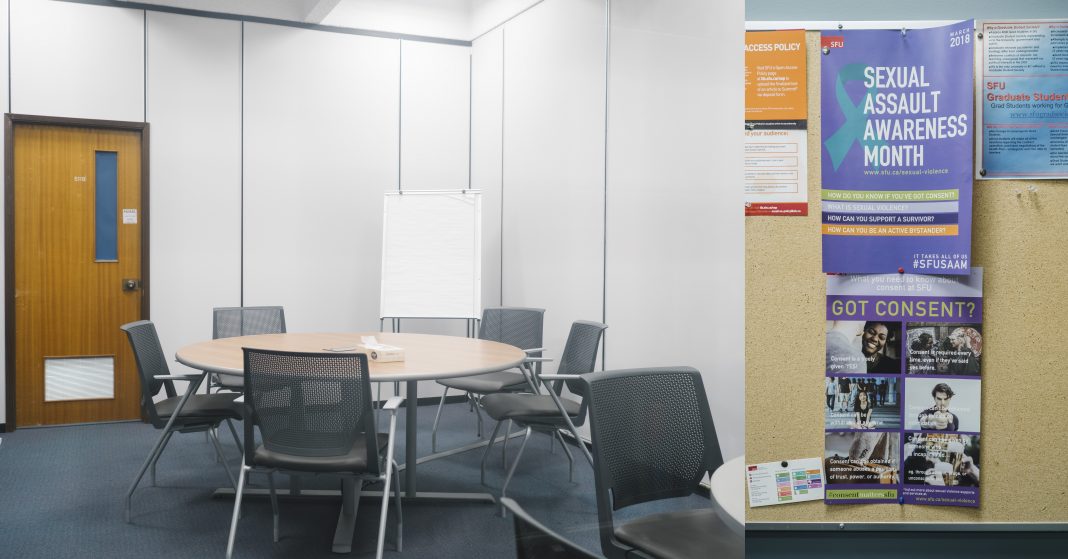On Wednesday, March 14, Simon Fraser University welcomed Alana Prochuk, the manager of public legal education at West Coast Legal Education and Action Fund (LEAF), to give a workshop titled Only Yes Means Yes, which focuses on consent and sexual assault. The workshop is being presented at post-secondary institutions across BC and aims to educate students on how the criminal justice system defines and handles consent and sexual assault. It has only been running for a month but, according to Prochuk, response from students have been extremely positive so far.
Since 1999, West Coast LEAF has been running a similar workshop for students aged 10 to 15 (grades five to nine) called No Means No. The workshop focuses on consent and sexual assault/harassment in relationships and the ways gender, power, stereotypes, and discrimination can play a role. This workshop was developed because the staff at West Coast LEAF want young people who might be thinking about sexual activity to gain an understanding of consent.
The workshop for post-secondary students was developed due to requests from people to bring a similar program to older students. However, Prochuk didn’t just want to present what the law says about consent and sexual assault, but to also bring a critical lense to it. She thinks it’s important to teach people to make informed decisions about their own lives and emphasize the responsibility for each person to get consent, rather than refuse consent.
The name of the workshop was changed from No Means No to Only Yes Means Yes because Prochuk wanted to dispel the myth that silence equals consent. At the beginning of the workshop, she reminded participants that the only form of affirmation is an enthusiastic yes. The Supreme Court of Canada has ruled that silence does not equal consent. “It is the responsibility of anyone initiating sexual contact to take steps to make sure that the other person is consenting in a clear, free, and ongoing way,” emphasized Prochuck.
The workshop held in the library on Wednesday was split into three main parts. After introductions, the first part focused on learning the legal definition of consent and sexual assault. Prochuk also led participants through situations where a person cannot give consent, such as when they’re being forced to engage in sexual activity, they are afraid of the other person, and when they’re incapable of giving consent (such as when one is drunk, asleep, or too young to be able to consent). During the second part of the workshop, participants were given hypothetical real life scenarios and discussed with others whether they were consensual or not. Lastly, there was discussion of three case studies regarding sexual assault, two of which West Coast LEAF was directly involved in.
After the workshop, The Peak had the opportunity to ask Prochuk how student reception has been in the current era of #MeToo and Time’s Up. In response, Prochuck commented that there is a lot more awareness from people who don’t have lived experience of the prevalence of the issue. She hopes that there is more conversation about sexual assault as it’s such a gendered and common experience.
“These movements are part of an important cultural moment when there’s recognition that the vast majority of women, girls, non-binary, and transgender people can say ‘Me Too.’” – Alana Prochuk, Manager of Public Legal Education at West Coast LEAF
On the topic of reception, Prochuk said people have been commending the workshop and believes it should be mandatory for all post-secondary students. Over the past month, the program has been doing well, with open registration numbers being as high as 20 people per workshop.
In regards to the future, West Coast LEAF is partnering with the Young Women’s Christian Association Metro Vancouver to work on a project called Dismantling the Barriers, which includes developing a report with policy recommendations based on the first-hand experiences of sexual assault survivors.




